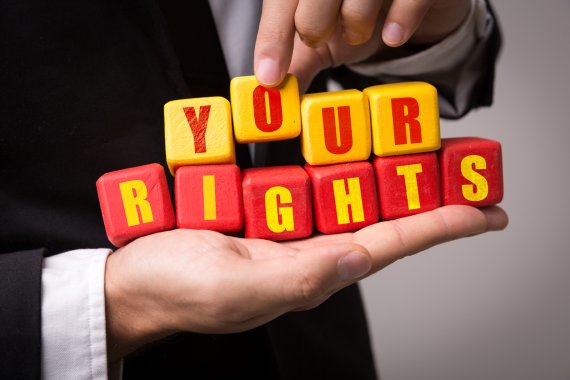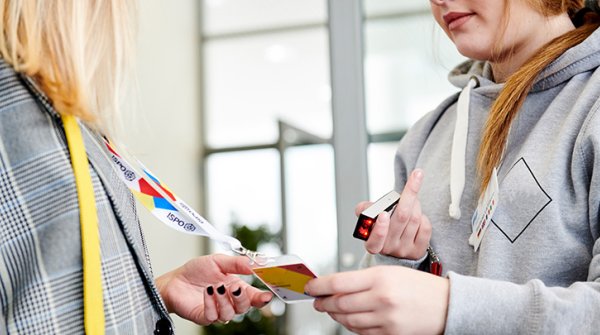
Imitations at Trade Fairs Information for exhibitors Exhibitions reflect markets. They bring together the entire range of products and services that an industry has to offer in concentrated form. They provide a comprehensive overview of the market for visitors, but also for the exhibitors themselves. Nowhere else can a company compare its own products with those of its competitors as easily as at exhibitions. Therefore, it is not surprising that, time and again, exhibitors first find out about imitations of their products at exhibitions.
In Germany, the right to imitate is a matter of principle. In other words, anyone basically has the right to copy the products, techniques and trademarks of others.
Only those who own special intellectual property (IP) rights can forbid others to reproduce and make commercial use of their protected product or their protected trademark. Besides banning others from manufacturing imitations of their products, owners of IP rights can also ban them from selling and even from offering or promoting product imitations. They can also demand that the counterfeiter stop violating their IP rights and pay damages for merchandise already sold. They have a right to information regarding the origin of the products and can even insist that any merchandise that still exists be destroyed.
Intellectual property rights include:
- Patents Patents are issued for inventions that are new, that involve an inventive step, and that can be put to commercial use. A patent gives the inventor the right to prevent others from using, manufacturing, selling or importing his invention for a specific period of time. In exchange, the inventor must disclose the details of his invention in a patent specification that is accessible to the public.
- Utility models As in the case of a patent, the object of a utility model must be new, must involve an inventive step, and must be capable of being put to commercial use. Utility models can be registered more quickly and cheaply than patents. However, when they are registered, they are not officially examined to ensure that they are new and involve an inventive step. As a result, some utility models can turn out to be 'fictitious rights' that cannot be enforced in the event of conflict.
- Trademarks All symbols, and especially words, images or design schemes, can be protected as trademarks if they can be used to distinguish the products or services of one company from those of another.
- Registered designs Registered designs are used to protect new product designs. As in the case of utility models, the German Patent and Trade Mark Office does not verify whether the design being registered actually satisfies the material prerequisites (especially if it is new and distinctly individual).
The organiser has applied for exhibition protection (exhibition priority) for the fair. Exhibitors can use this form of protection for utility models, registered designs and trademarks. For an exhibitor, the priority certificate is proof that the innovation described in the certificate was presented at the exhibition. If the exhibitor registers his utility model, registered design or trademark with the German Patent and Trademark Office within six months of the first day of the exhibition, protection begins on the first day of the exhibition, and not on the date of registration. Exhibition priority certificates are issued by a patent attorney appointed by the organiser who will be present at the exhibition against a fee to be paid by the exhibitor.
To avoid unpleasant surprises later, you can also take action before the exhibition begins. The first thing to do is to contact an attorney. To ensure that your product or trademark is sufficiently protected against counterfeiters, you must have IP protection. You should bring any documents that prove to have IP protection (originals or certified copies of the patent certificate and, in some cases, any previously issued cease-and-desist orders or judgements against the counterfeiter) with you to the fair. You should also be sure to contact an attorney at the exhibition, even if it means doing so on the weekend.
If you – as a holder of intellectual property rights - learn that imitations of your protected products are on exhibit at the fair, it is recommended to apply at the Central Federal Agency for Intellectual Property Rights for taking an action by the custom authorities due to the European regulation (EU) No. 608/2013 (so called border confiscation) before the fair will start. Border seizures allow customs officials to remove goods that violate patent rights from circulation, even if they have already crossed the border. If there is any suspicion that your IP rights will be offended, the custom authorities are able to confiscate any goods imported from third countries before the fair starts and to inform you about the confiscated goods. If the suspicion will be confirmed, the custom authorities have the power to destroy the infringing goods and you have the possibility to bring an action in front of the Civil Court to declare the violation of your rights.
If you learn that imitations of your protected products are on exhibit at the fair, you can, with the help of your attorney, send the counterfeiter a warning, offering him the chance to file a declaration to cease and desist that includes a penalty clause. If the counterfeiter does not want to sign the declaration, you can prevent him from exhibiting the products that violate your protective rights with a court-ordered temporary injunction.
Due to the provisions of the law against unfair competition, imitations of products that do not have protective rights may also be illegal in exceptional cases. This presumes that a manufacturer copies and markets a competitor's product that has competitive individuality. In addition, special circumstances must exist that make the manufacturer's behaviour appear dishonest. The principle of the right to imitate can only be broken by this form of competition-law protection if these narrowly defined requirements are met.
The exhibition organiser would be pleased to provide any support that you need to make your exhibit a success. If you would like to meet with an exhibitor during the exhibition to avoid a legal dispute and require the support of the organiser, we can serve as mediator. We would like to call your attention to the fact that, as the organiser, we have a duty to all exhibitors to remain neutral and can not assert your rights over those of others.


